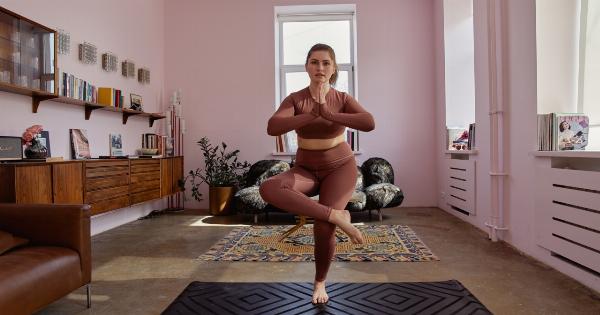Depression and anxiety are common mental health challenges that affect millions of people around the world. These conditions manifest in different ways, including feelings of sadness, isolation, hopelessness, and panic attacks.
While medication and therapy are effective ways of managing depression and anxiety, they might not be enough for some individuals. In this article, we discuss ten alternative exercises that can help combat depression and anxiety.
1. Yoga
Yoga is an ancient practice that has been used to promote physical and mental well-being for centuries. The benefits of yoga for depression and anxiety come from its ability to reduce stress, increase mindfulness, and enhance self-awareness.
Yoga poses, or asanas, help relax the body and mind, which can reduce the production of stress hormones that contribute to anxiety and depression.
2. Tai Chi
Tai Chi is a martial art that originated in China and is now commonly used as a form of meditation and exercise. Like yoga, Tai Chi can help reduce stress, promote relaxation, and improve physical health.
Research shows that Tai Chi can help people with depression and anxiety by improving mood, reducing stress, and enhancing cognitive ability.
3. Outdoor Walks
Outdoor walks are an easy, free way of combating depression and anxiety. Walking in nature or simply around your neighborhood can help clear your head, reduce stress, and provide some much-needed physical activity.
A combination of fresh air, sunshine, and exercise can help increase endorphins, which are feel-good chemicals in the brain. Endorphins can help reduce the symptoms of depression and anxiety.
4. Dancing
Dancing is a fun and creative activity that can help reduce stress, improve physical health, and boost self-esteem. Dancing involves physical movement, which can help release endorphins and alleviate depression and anxiety symptoms.
Additionally, group dancing can foster a sense of community and social support, which is crucial for managing depression and anxiety.
5. Swimming
Swimming is a low-impact, full-body exercise that can help improve mood, reduce stress, and promote relaxation. Swimming can stimulate the production of endorphins while also reducing cortisol, a stress hormone associated with anxiety and depression.
Water’s buoyancy can also provide a sense of weightlessness that can help reduce tension in the body and mind.
6. Writing
Writing can be a therapeutic exercise that allows you to express your thoughts and feelings about depression and anxiety. Writing can help you to explore your emotions, put them into words, and create a sense of order.
Journaling can also help identify patterns or triggers that contribute to your depression and anxiety. It can also enable you to develop coping strategies to deal with these emotions constructively.
7. Gardening
Gardening can be a way to get outdoors and connect with nature while also getting some exercise. Gardening can increase physical activity, reduce stress, and promote relaxation.
Planting, harvesting, and nurturing plants can also be a meditative activity that can help reduce symptoms of depression and anxiety. Furthermore, creating beautiful spaces can help improve your surroundings’ aesthetic quality and uplift your mood.
8. Mindful Breathing
Mindful breathing exercises can help reduce anxiety and depression symptoms by promoting relaxation and mental clarity.
These techniques involve focusing your attention on the sensations of your breath, which can help clear your mind of negative thoughts and feelings. Breathing exercises can be done anywhere, making them the ideal exercise that can be practiced anywhere, anytime, to combat depression and anxiety.
9. Acupuncture
Acupuncture is an alternative therapy that involves the insertion of tiny needles into specific points on the body. The practice dates back to ancient China and has been used for centuries to relieve pain and promote overall health.
Research suggests that acupuncture can help reduce depression and anxiety symptoms by regulating the body’s production of neurotransmitters and hormones that contribute to these conditions.
10. Mindfulness Meditation
Mindfulness meditation is a practice that involves focusing your attention on the present moment without judgment. This technique can help reduce rumination, which is a common symptom of depression and anxiety.
Mindfulness meditation can help increase self-awareness, reduce stress, and promote relaxation. Research shows that mindfulness meditation can improve depression and anxiety symptoms and promote overall well-being.




























